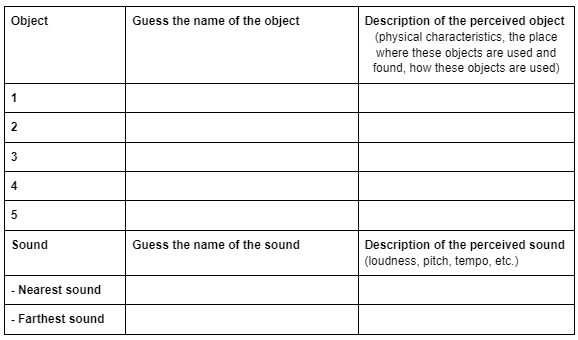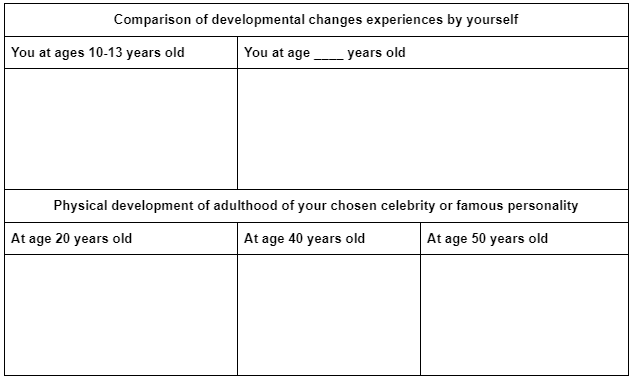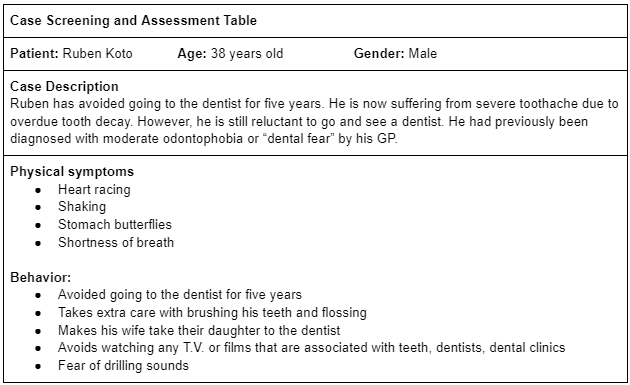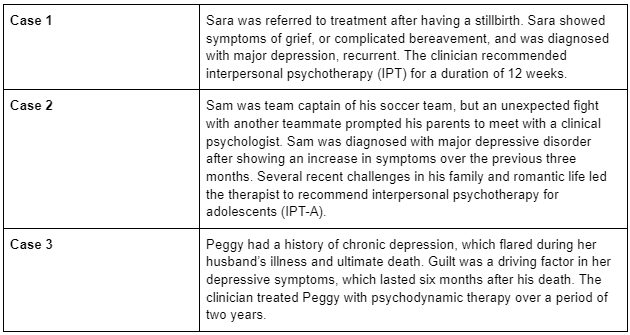-
GeneralGeneral
-
Introduction to Psychology Homepage - MCAT
Welcome to the Psychology course, for the Pre-Health Sciences Training Certificate. This course and the certificate are designed primarily for learners interested in preparing for and gaining entry for health-related programs, and to help address the prerequisites for the Medical College Admission Test (MCAT).
This Psychology course provides in-depth learning as it relates to general psychological concepts and techniques used in the natural, behavioral, and social sciences fields.The course will also explore important areas of Psychology including biopsychology, sensation and perception, human development as well as learning and memory. Additionally, students will gain a better understanding of the influence of psychology on social, mental, and physical health.
This course, Introduction to Psychology, is sponsored by the University of the Incarnate Word School of Osteopathic Medicine. Like all NextGenU.org courses, it is competency-based, using competencies based on the Association of American Medical Colleges’ Medical College Admission Test. It uses learning resources from accredited, academic, professional, and world-class organizations and universities such as Rice University, and American Psychological Association. The course was designed by Samantha Baboolal, B.A; Pablo Baldiviezo, MD, DiplEd; Carolina Bustillos, MD, DiplEd; Ma.Genikka Camille Gabral, BEd, MSc; Reisha Narine, MSc, BSc; Rhonda Prudent, BSc; Hugo Rojas, MD, MSc, DiplEd.
For publications on NextGenU.org’s courses’ efficacy, see NextGenU.org’s publication page.

There are 16 modules to complete, which provide an introduction to:
- Module 1: Psychology: The Scientific Study of Behavior
- Module 2: Biopsychology: Biological Bases of Behavior
- Module 3: Perception and Sensation
- Module 4: Consciousness
- Module 5: Human LifeSpan Development
- Module 6: Learning and Attitude
- Module 7: Motivation and Emotion
- Module 8: Cognition and Intelligence
- Module 9: Memory
- Module 10: Personality
- Module 11: Health Psychology, Stress, Coping, and Mental Health
- Module 12: Psychological Disorders
- Module 13: Abnormal Psychology
- Module 14: Social Psychology
- Module 15: Industrial-Organizational Psychology
- Module 16: Counselling Psychology
The completion time for this course is estimated at 193 hours, comprising 25 hours of learning resources, 50 hours of studying and assimilation of the content, and 118 hours of participating in learning activities and quizzes to assist the learners in synthesizing learning materials. This course is equivalent to 3 credit hours s in the U.S. undergraduate/bachelor’s degree system.
The course requires completion of all quizzes, discussion forums, and activities to receive a course certificate, at the end of each module, there is a practice quiz of 10 multiple-choice questions. After you’ve completed each module, learning activity, and quiz, at the end of the course, you’ll have access to a final exam consisting of 50 multiple-choice questions, and a chance to evaluate this course.
Participants have up to three opportunities to take the final exam and achieve the required passing score of >=70%. Once you’ve passed the final exam and completed the evaluations, you will be able to download a certificate of completion from NextGenU.org and our course’s co-sponsoring organizations.
We keep all of your personal information confidential, never sell any of your information, and only use anonymized data for research purposes. Also, we are happy to report your testing information and share your work with anyone (your school, employer, etc.) at your request.
Reading Times:
At NextGenU.org, we provide the estimated reading times for all of our Learning Resources (LRs) i.e. webpages, articles, and slides. The estimated reading time is calculated using a reading speed of 144 words per minute (no. of words recommended to read in the LR ÷ 144 words per minute). Additionally, we calculate the study/assimilation which for primary sources, is multiplied by 2, and for secondary sources, is multiplied by 1 (estimated read time x 2 = study/assimilation time).
Engaging with this Course:
This free course is aimed at students who have graduated from high school and want to prepare to become a health professional, and/or pass the MCAT exam. You may also browse this course for free to learn for your personal enrichment; there are no requirements.
To obtain a certificate, a learner must first register for the course and then successfully complete:
- Pre-test
- All the reading requirements,
- All quizzes and pass with a 70% with unlimited attempts,
- All peer activities,
- All discussion forums,
- The final exam with a minimum of 70% and a maximum of 3 attempts, and
- The self and course evaluation forms.
To obtain credit:
- Complete all requirements listed above for the certificate, and
- Your learning institution or workplace should approve the partner-university-sponsored NextGenU.org course for educational credit, as they usually would for their learner taking a course anywhere.
NextGenU.org is happy to provide your institution with:
- A link to and description of the course training, so they can see all of its components, including the co-sponsoring institutions;
- Your grade on the final exam;
- Your work products (e.g., discussion forum responses) and any other required or optional shared materials that you produce and authorize to share with them;
- Your evaluations -- course, and self-assessments;
- A copy of your certificate of completion, with the co-sponsoring organizations listed.
To obtain a degree, NextGenU.org co-sponsors degree programs with institutional partners. To obtain a full degree co-sponsored with NextGenU.org, registrants must be enrolled in a degree program as a student of a NextGenU.org institutional partner. If you think your institution might be interested in offering a degree with NextGenU.org, contact us.
We hope you will find this a rewarding learning experience, and we count on your assessment and feedback to help us improve this training for future students.
Here are the next steps to take the course and earn a certificate.
- Complete the registration form.
- Take the pre-test.
- Begin the course with Module 1: Psychology: The Scientific Study of Behaviour. In each lesson, read the description, complete all required readings and any required activity, as well as take the corresponding quizzes.
-
Module 1: Psychology: The Scientific Study of Behavior
 Instructional Goals covered in this module:
Instructional Goals covered in this module:- Understand psychology as a science, its historical foundations, and its importance.
- Understand Psychological Research and methods of Research.
-
Module 1: Lesson 1: Definition and Development of Psychology
Learning objectives:
- Define Psychology and its merits.
- Explore the paradigm shifts that have influenced psychology.
- Identify the fields and career options in Psychology.
4 URLs -
Module 1: Lesson 2: Research and Ethics in Psychology
Learning objectives:
- Explain the importance of Psychological research.
- Describe the methods in psychological research.
- Explain ethics in psychological research.
3 URLs, 1 Forum - Explain the importance of Psychological research.
-
Module 2: Biopsychology: BIological Bases of Behavior
 Instructional Goals covered in this module:
Instructional Goals covered in this module:- Understand the Biological structures and processes by which bodies carry out activities. Understand the Psychological factors which affect behavior.
-
Module 2: Lesson 1: The structure and function of Nervous system
Learning Objectives:
- The nervous system, the neurons and neurotransmitters, neuronal communication, and its influence on behavior.
- Describe the structure and function of the peripheral nervous system.
- Define the structure and function of the central nervous system, and the methods used in studying the brain and the areas of the brain that control language and speech.
6 URLs - The nervous system, the neurons and neurotransmitters, neuronal communication, and its influence on behavior.
-
Module 2: Lesson 2: Biological Influences in Psychology
Learning Objectives:
- Identify the components of the endocrine system and its effects on behavior.
- Discuss behavioral genetics in terms of genes, temperament, and heredity, Influence of genetic and environmental factors on the development of behaviors, and genetically based behavioral variation in natural environment.
- Identify adaptive value of traits and behaviors, interaction between heredity and environmental influences.
- Describe why gene regulation of operons is important.
5 URLs, 1 Forum, 1 Quiz - Identify the components of the endocrine system and its effects on behavior.
-
Module 3: Perception and Sensation
 Instructional Goals covered in this module:
Instructional Goals covered in this module:- Understand perception and its functions.
- Examine humans sensory processing, functions of sensation and perception, and understand the human senses of sight, hearing, touch, and smell.
-
Module 3: Lesson 1: The functions of perception and sensation
Learning objectives:
- Discuss perception, Bottom-up/top-down processing, Weber’s Law, and the Gestalt Principles of Perception.
- Describe the concepts of threshold, Signal detection theory, sensory adaptation, sensory receptors, sensory reception by hair cells, and psychophysics.
5 URLs -
Module 3: Lesson 2: Sensory Processing and Sensing the Environment (Vision, hearing and other senses)
Learning objectives:
- Describe the pathways that sensory systems follow into the central nervous system.
- Discuss sound, perceptual experiences, waves, and wavelengths.
- Describe the structure and function of the eye and visual processing.
- Describe the basic anatomy and function of the auditory system, encode and perceive pitch and localize sound.
- Describe the taste and somatosensation, smell, pheromones, kinesthetic sense, and vestibular sense.
8 URLs, 1 Forum, 1 Quiz -
Module 4: Consciousness

Instructional Goals covered in this module:
- Understand the states of consciousness with emphasis on sleep.
- Understand stages of sleep and sleep disorders.
- Understand altered states of consciousness produced by psychoactive drugs.
- Define hypnosis and meditation.
-
Module 4: Lesson 1: Definition of Consciousness and Alertness and Types of Attention (Selective and Divided)
Learning objectives:
- Understand consciousness.
1 URL -
Module 4: Lesson 2: The normal sleep and its disorders.
Learning Objectives:
- Describe sleep and the different stages.
- Describe sleep cycle, sleep, and circadian rhythms.
- Discuss sleep problems and disorders.
4 URLs -
Module 4: Lesson 3: Altering Consciousness.
Learning Objectives:
- Discuss the altered state of consciousness produced by psychoactive drugs.
- Discuss the state of consciousness produced by hypnosis and meditation.
2 URLs, 1 Forum, 1 Quiz - Discuss the altered state of consciousness produced by psychoactive drugs.
-
Module 5: Human Lifespan Development

Instructional Goals covered in this module:
- Understand human physiological development in three stages: pre-natal, adolescent, and adulthood.
- Understand human physiological development in three stages: pre-natal, adolescent, and adulthood.
-
Module 5: Lesson 1: Developmental Milestones in the stages of human development.
Learning objectives:
- Describe the stages of prenatal development and recognize the importance of prenatal care, motor development, and developmental changes in adolescence.
- Discuss the developmental changes in adolescence and self-identity.
- Discuss the physical development of adulthood.
3 URLs, 1 Forum, 1 Quiz - Describe the stages of prenatal development and recognize the importance of prenatal care, motor development, and developmental changes in adolescence.
-
Module 6: Learning and Attitude
 Instructional Goals covered in this module:
Instructional Goals covered in this module:- Understand the Theories of Learning.
- Understand the Theories of Learning.
-
Module 6: Lesson 1: Types of Learning in Psychology
Learning objectives:
- Recognize and define three basic forms of learning—classical conditioning, operant conditioning, and observational learning.
- Define observational learning and the steps in the modeling process.
- Describe habituation and dishabituation.
5 URLs, 1 Forum, 1 Quiz - Recognize and define three basic forms of learning—classical conditioning, operant conditioning, and observational learning.
-
Module 7: Motivation and Emotion
Instructional Goals covered in this module:

- Explore issues relating to both motivation and emotion.
- Explore issues relating to both motivation and emotion.
-
Module 7: Lesson 1: Motivation, Emotion and the physiological needs that drive human behavior
Learning objectives:
- Define intrinsic and extrinsic motivation and basic concepts associated with Maslow’s hierarchy of needs.
- Describe how hunger and eating are regulated.
- Understand basic biological mechanisms regulating sexual behavior and motivation, sexual orientation, and gender identity.
- Understand the concept of Emotion.
4 URLs, 1 Forum, 1 Quiz - Define intrinsic and extrinsic motivation and basic concepts associated with Maslow’s hierarchy of needs.
-
Module 8: Cognition and Intelligence
 Instructional Goals covered in this module:
Instructional Goals covered in this module:- Understand the higher levels of cognitive processes and the development of languages.
- Understand the higher levels of cognitive processes and the development of languages.
-
Module 8: Lesson 1: Cognition
Learning objectives:
- Discuss how humans process information they receive, rather than merely responding to stimuli.
- Describe Piajet's stages of cognitive development.
- Describe cognitive changes in late adulthood.
- Discuss the role of culture in cognitive development.
- Influence of heredity and environment on cognitive development.
8 URLs, 1 Forum - Discuss how humans process information they receive, rather than merely responding to stimuli.
-
Module 8: Lesson 2: Thinking and Intelligence
Learning objectives:
- Describe problem solving strategies and common roadblocks to effective problem solving and decision making.
-
Define intelligence and identify the differences in the intelligence theories.
- Describe the purposes and benefits of intelligence testing.
- Describe the Influence of heredity and environment on intelligence.
- Describe how genetics and environment affect intelligence and what are the variations in intellectual ability.
5 URLs - Describe problem solving strategies and common roadblocks to effective problem solving and decision making.
-
Module 8: Lesson 3: Language
Learning objectives:
- Define language and demonstrate familiarity with the components of language development and the relationship between language and thinking.
2 URLs, 1 Quiz -
Module 9: Memory
 Instructional Goals covered in this module:
Instructional Goals covered in this module:- Understand: how humans process and store information; the different types of memory; how we retrieve our memories and why do we forget.
-
Module 9: Lesson 1: Types of memory and their functions
Learning objectives:
- Describe the process of encoding information.
-
Discuss the types of memory storage; semantic networks and spreading activation, and relearning.
2 URLs - Describe the process of encoding information.
-
Module 9: Lesson 2: Memory Problems, Forgetfulness, and Aging
Learning objectives:
- Discuss memory problems, memory construction, and source monitoring.
- Explain memory dysfuntion and forgetfullness in relation to aging.
6 URLs, 1 Forum - Discuss memory problems, memory construction, and source monitoring.
-
Module 9: Lesson 3: The role of memory in learning and retrieval methods
Learning objectives:
- Differentiate between memory and learning.
-
Describe the processes that aid in encoding memories.
- Discuss the changes in synaptic connections which underlie memory.
- Discuss neural plasticity.
- Recognize and apply memory-enhancing strategies and study techniques.
8 URLs, 1 Forum, 1 Quiz - Differentiate between memory and learning.
-
Module 10: Personality
 Instructional Goals covered in this module:
Instructional Goals covered in this module:- Understand the theories of personality and the influences on human behavior.
-
Module 10: Lesson 1: Definition and theories of personality.
Learning objectives:
- Describe personality and the early theories about personality development.
-
Describe the assumptions of the psychodynamic perspective on personality development.
- Discuss the concept of the inferiority complex.
- Describe the behaviorist, cognitive and social perspectives on personality.
- Discuss the contributions of Abraham Maslow and Carl Rogers to personality development.
- Discuss the evolutionary perspective on personality development.
- Discuss early trait theories of Cattell and Eysenck, the Big Five factors, and describe someone who is high and low on each of the five factors.
7 URLs -
Module 10: Lesson 2: Personality in the context of culture and personality assessment
Learning objectives:
- Discuss the cultural understandings of Personality.
-
Recognize and describe common projective tests used in personality assessment.
2 URLs, 1 Forum, 1 Quiz - Discuss the cultural understandings of Personality.
-
Module 11: Health Psychology, Stress, Coping and Mental Health
 Instructional Goals covered in this module:
Instructional Goals covered in this module:- Understand the role of the stress on mental health and mechanism to coping it.
- Understand the role of the stress on mental health and mechanism to coping it.
-
Module 11: Lesson 1: Health psychology and stress
Learning objectives:
- Describe stress and different types of possible stressors.
- Describe stress-related illness.
- Define coping and differentiate between problem-focused and emotion-focused coping.
- Describe the field of positive psychology and identify the types of problems it addresses.
5 URLs, 1 Forum, 1 Quiz - Describe stress and different types of possible stressors.
-
Module 12: Psychological Disorders
 Instructional Goals covered in this module:
Instructional Goals covered in this module:- Understand psychological disorders and the problems inherent in defining the concept of a psychological disorder.
- Understand psychological disorders and the problems inherent in defining the concept of a psychological disorder.
-
Module 12: Lesson 1: Introduction to Psychological Disorders
Learning objectives:
- Identify the criteria of thoughts, feelings, and behaviors that must be met to be considered abnormal and, thus, symptomatic of a psychological disorder.
- Identify the most common disorders.
- Describe modern biological and supernatural perspectives on the origin of psychological disorders.
3 URLs -
Module 12: Lesson 2: Classification of Psychological disorders
Learning objectives:
- Describe the major anxiety disorders, including their main features and prevalence.
-
Describe the main features and prevalence of obsessive-compulsive disorder, body dysmorphic disorder, and hoarding disorder.
- Describe the nature and symptoms of post-traumatic stress disorder and the risk factors.
- Describe the symptoms of major depressive disorder and bipolar disorder, and the differences between major depressive disorder and persistent depressive disorder, and identify two subtypes of depression.
- Discuss Statistics related to mental health disorders.
- Discuss the nature of schizophrenia, addressing the misconception that it involves a split personality.
- Identify and differentiate the symptoms of dissociative disorders, amnesia, depersonalization/ derealization disorder, and dissociative identity disorder.
- Identify and differentiate the symptoms of dissociative disorder, amnesia, depersonalization/ derealization disorder, and dissociative identity disorder in childhood.
- Describe the nature of personality disorders and how they differ from other disorders.
9 URLs, 1 Forum, 1 Quiz -
Module 13: Abnormal Psychology
 Instructional Goals covered in this module:
Instructional Goals covered in this module:- Understand abnormal behavior from Psychologic perspective and their respective treatments.
-
Module 13: Lesson 1: Introduction to Abnormal Psychology
Learning objectives:
- Describe normative and nonnormative behavior in society.
2 URLs - Describe normative and nonnormative behavior in society.
-
Module 13: Lesson 2: Mental Health Therapy and Treatments; evolution, types, and modes of treatment.
Learning objectives:
- Explain how people with psychological disorders have been treated throughout the ages.
- Discuss psychotherapy and biomedical therapy.
-
Distinguish between the various modalities of treatment.
- Describe how addictive disorders are treated.
- Explain how the sociocultural model is used in therapy.
5 URLs, 1 Forum, 1 Quiz - Explain how people with psychological disorders have been treated throughout the ages.
-
Module 14: Social Psychology
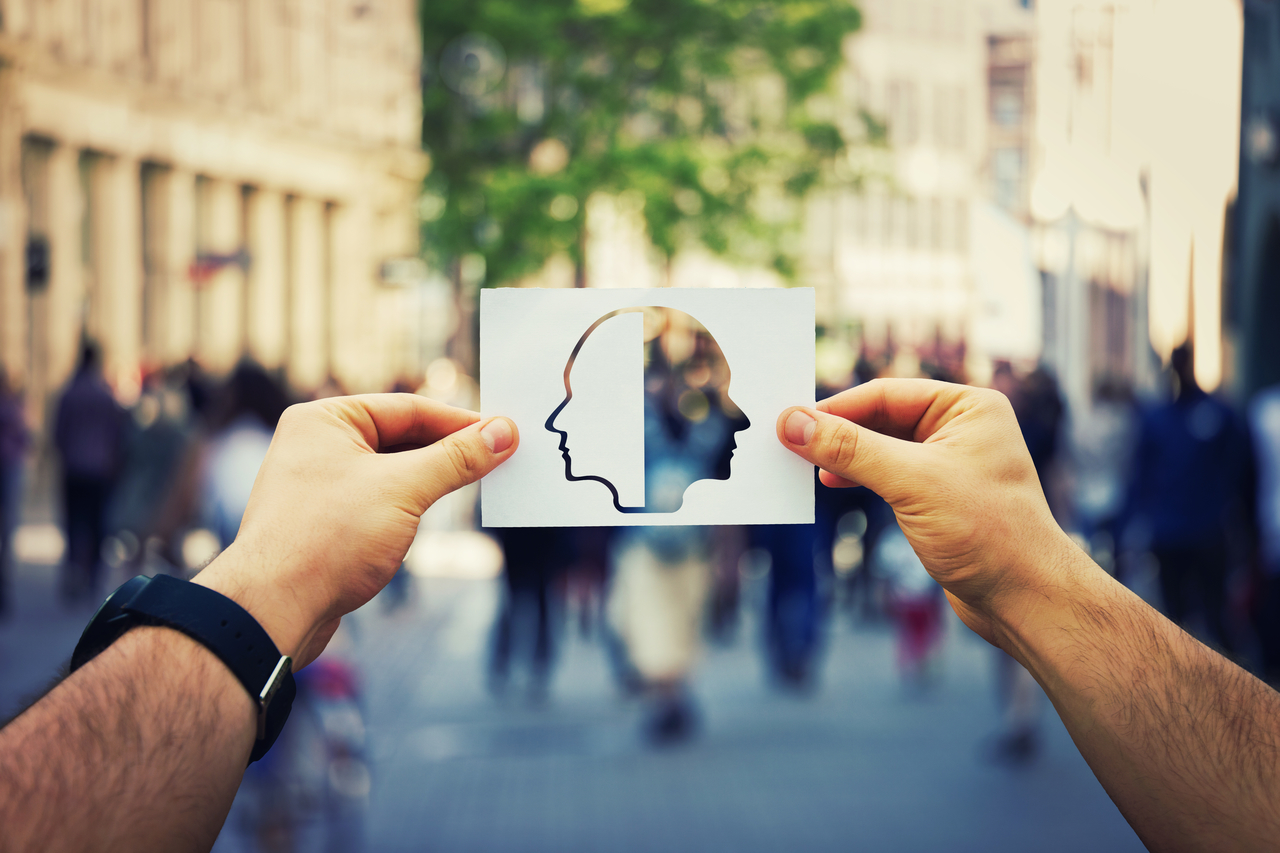 Instructional Goals covered in this module:
Instructional Goals covered in this module:- Describe how social psychology plays a role in social behavior at the individual and collective levels.
-
Module 14: Lesson 1: Definition of Social Psychology
Learning objectives:
- Describe social psychology and situational versus dispositional influences on behavior.
1 URL -
Module 14: Lesson 2: Determinants of Social behavior
Learning objectives:
- Describe social roles and how they influence behavior.
-
Describe how people’s attitudes are internally changed through cognitive dissonance.
- Discuss the different agents of socialization.
- Describe the Psychology of making group decisions.
- Describe social thinking.
5 URLs, 1 Forum, 1 Quiz - Describe social roles and how they influence behavior.
-
Module 15: Industrial-Organizational Psychology
 Instructional Goals covered in this module:
Instructional Goals covered in this module:- Understand the role of industrial and organizational psychology.
-
Module 15: Lesson 1: The role of Psychology in the Workplace
Learning objectives:
- Discuss the scope of study in the field of industrial and organizational psychology.
-
Describe the approaches to issues surrounding performance assessment.
- Explain the role of human factors- psychology in safety, productivity, and job satisfaction.
4 URLs, 1 Forum, 1 Quiz - Discuss the scope of study in the field of industrial and organizational psychology.
-
Module 16: Counselling Psychology
 Instructional Goals covered in this module:
Instructional Goals covered in this module:- Understand Counselling Psychology and the Counselling Relationship.
-
Module 16: Lesson 1: Introduction to Counseling Psychology
Learning objectives:
- Describe counseling psychology.
- Discuss the counseling relationship between the patient and psychologist.
2 URLs, 1 Forum, 1 Quiz - Describe counseling psychology.
-
Final Activity
Approximate time required for the readings for this lesson (at 144 words/minute): 6 hours and 50 minutes.1 Forum -
Course and Self Evaluation & Certificate
 In this section, you can provide feedback about this course to help us make NextGenU.org better. Once evaluations are completed, you will be able to download your certificate of completion.
In this section, you can provide feedback about this course to help us make NextGenU.org better. Once evaluations are completed, you will be able to download your certificate of completion.



